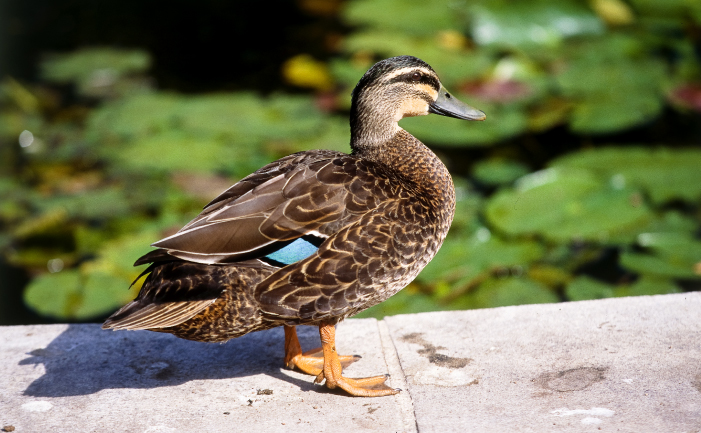Temperament: friendly, messy, lovable
Cost: $20 plus
Lifespan: 7 years
Recommended for: Backyarders, hobbyists
Maintenance: Medium
Many people dream one day of having some ducks in the backyard and there are quite a few different breeds you can pick from. Ducks are bred for all sorts of purposes; as snail eaters, egg layers, for meat or simply as a hobby so it’s just a matter of choosing a breed that suits your backyard and needs.
Breeds
The Pekin is described as an attractive large white duck, although the plumage can show a tinge of cream or yellow. They weigh 3.5-4kg (about 8-9lb) with yellow or reddish-orange bill and legs. They are usually bred for meat but are also attractive ducks in the backyard.
Other duck breeds mentioned in our segment include the Muscovy which is actually a separate species. Muscovies come in colours including black, blue, white, black & white, and white. They are docile, placid and good foragers for snails. They are also bred for their meat and eggs.
The Cayuga takes it name from Lake Cayuga in the US. These are large and pretty green-black ducks which are good layers and are quieter than other breeds.
Khaki Campbells are medium sized ducks (2.25-2.5kg (5-5.5lb)) with slender necks. They are mainly khaki coloured with a dark brown upper head and neck. These are fast growing and easy to raise ducks, usually bred as layers because their eggs are a similar size to chicken eggs.
Temperament
Ducks are intelligent and friendly in general. Some breeds are quieter than others but most breeds contain lovable characteristics.
Health
Rarely suffer from ill health when well looked after and protected from predators. Feed ducks scraps and leftovers but include some commercial duck food from produce stores to ensure they get essential nutrients. Supply plenty of fresh water for drinking as well as water in a small pond for swimming (a disused child’s pool will do). Make sure there is still a dry area in the pen so that their feet are not wet all the time, otherwise they could develop infections of the foot. Worm regularly, about twice a year, to keep them healthy.
Breeding
Some breeds like Pekins and Khaki Campbells are not considered good sitters although they do produce up to 120 eggs per season. Larger breeders will use incubators while others may substitute these eggs under another broody duck.
Space
Most duck breeds are well suited to suburban backyards and will forage for slugs and snails in the garden. All ducks can be messy and may trash a vegetable garden if allowed. While a pool or pond is not critical, a water container large enough in which to allow them to dunk is essential to ensure their eyes, nostrils and beaks stay clean and healthy.
Ducks do best when they have plenty of space in which to wander and so are best suited to larger backyards. It’s important to check with your local council to ensure by-laws allow the keeping of poultry or waterfowl in the area.
Maintenance
Ducks need a shed or shelter that has a predator-proof yard or house to keep them safe at night and provide protection from the weather. Dry straw or a similar bedding is necessary for the ducks to sleep on and lay in. Renew the bedding every couple of days. The water container needs room enough for the ducks to splash and wash themselves and thus minimise mud clinging to feathers. A single duck can be lonely so always keep two or more ducks.
Uses
Some ducks like Muscovies and Cayugas are said to be good egg producers and excellent foragers for garden pests. However, other breeds like Pekins are eaten each year and are considered excellent table birds.
Further information
If you want to know more about the different breeds or such things as the colour of their eggshells, consult the Poultry Breeders Directory, phone: (03) 5792 4000.
Pheasant & Waterfowl Society of Australia
QLD
Steven Armstrong 0417 641 759
SA
Ian Siegele (08) 8379 9409
VIC
Bret Henderson 0400 074 048
WA
Stuart Hearn (08) 9390 2542
NSW
Doug Sommerville (02) 4828 6619



